commentary Commentary
Commentary: Why Prime Minister Mahathir Mohamad should set a timeline for handover
Uncertainty over political succession will distract Malaysia from resolving other more pressing national issues, says Oh Ei Sun.
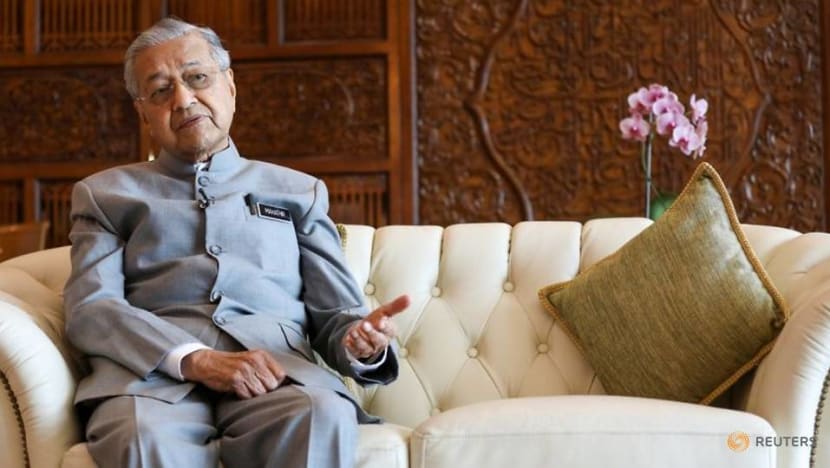
Malaysia's Prime Minister Mahathir Mohamad speaks during an interview with Reuters in Putrajaya, Malaysia, December 10, 2019. (File photo: REUTERS/Lim Huey Teng)
KUALA LUMPUR: The issue of political succession in Malaysia has been a hot topic for months, with Prime Minister Mahathir Mohamad pledging to hand over to Anwar Ibrahim, while being coy over the timeline.
Mahathir says setting an exact timeframe will make it difficult for him to work. However, there are clear benefits for him to announce a concrete plan.
By doing so, he will quell the political uncertainties in Malaysia, which risk descending into a free-for-all slug, so that the nation’s focus can be refocused on fixing the economy as well as other bread and butter issues.
Malaysia practises parliamentary democracy, with the Member of Parliament commanding a majority support of the lower house of parliament assuming the prime minister position and forming a government.
After the historic general election last year, the Pakatan Harapan (PH) coalition of parties, to which both Mahathir’s Bersatu and Anwar Ibrahim’s Parti Keadilan Rakyat parties belong, won a simple parliamentary majority and Mahathir was presented by the coalition as its choice to assume the top role.
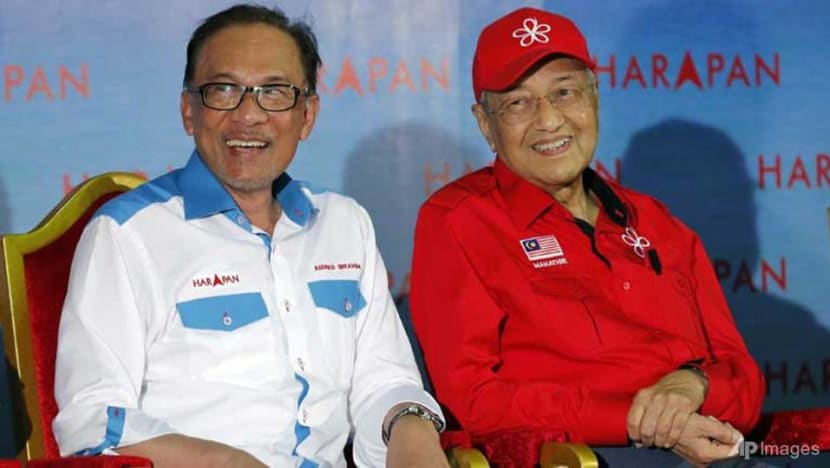
READ: Commentary: Mahathir holds all the keys to Malaysia’s political succession
This was despite reports that the offer to form a government was first given to Wan Azizah – Anwar’s wife and then Keadilan president – as head of the party with the most parliamentary seats, who said she declined in favour of Mahathir and later became deputy prime minister.
The fact that Bersatu won the least number of parliamentary seats in Pakatan and yet the coalition presented Mahathir as prime minister suggests the Pakatan component parties had come to a political understanding before the election whereby if they did assume power, Mahathir would serve a partial term and then step down in favour of Anwar.
The precise timing for the transition of power was, however, left to speculation, which now ranges from a precise two-year stint to a rather vague “half term”.
A CONTEST OF WILLS
Without a concrete timeline, some believe there is a “contest of wills” behind the scenes.
Mahathir is serving his second and probably last term as PM. He would like to see to it that his legacy and long years of accomplishments would outlast his departure from power.
It is thus essential for him to choose at least an immediate successor who would faithfully execute his vision for the country.
READ: Commentary: Mahathir’s ‘Game of Thrones’ grand plan is almost complete
His previous two choices as successor, Abdullah Badawi and Najib Razak, had profoundly disappointed him, and he would not deign to pass on power to Anwar, who was once his protégé even before the aforementioned two, but whom he once publicly dismissed as being too ambitious to replace him.
Anwar, on the other hand, had over the last two decades built up a sizable political status as a champion for justice and reform.
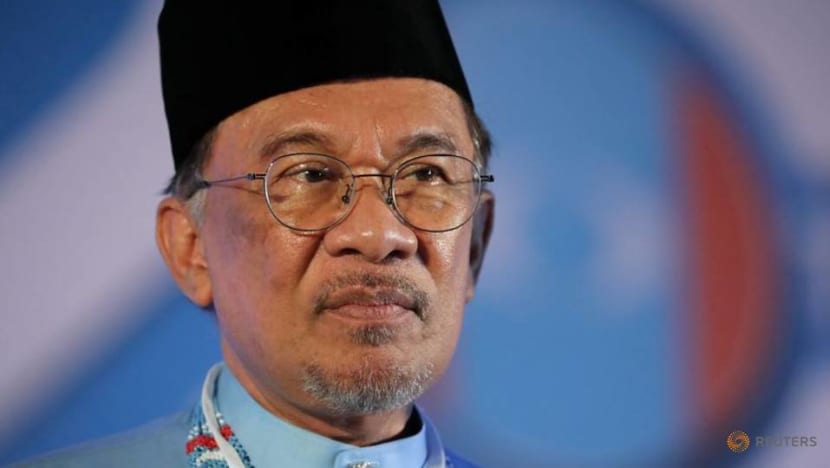
He is not about to let Mahathir snatch away the fruits of Reformasi, the broad political and social movement he at least spiritually led, which had somewhat reluctantly agreed to partner with Mahathir who commanded wider appeal among the conservative Malays who made up the bulk of the voters, in order to topple the then indomitable Barisan Nasional government.
AZMIN’S ROLE
Mahathir thus may have been seemingly been deliberately vague about the handover of power to Anwar, dropping snippets ranging from not having an official political agreement for the handover, to considering stepping down after the next APEC meeting in November 2020, and many variations in between, sometimes changing his position back and forth between statements.
Mahathir may also be cultivating the impression that he would rather favour Azmin Ali, Anwar’s Keadilan deputy, as his successor.
He promoted Azmin to the resourceful cabinet portfolio of economic affairs, overseeing various government-linked companies. This is a role that is very conducive for expanding Azmin’s political base.
This may have emboldened Azmin to be openly defiant of his erstwhile political guru Anwar within the party, condemning Anwar publicly and refusing to even attend party leadership meetings.
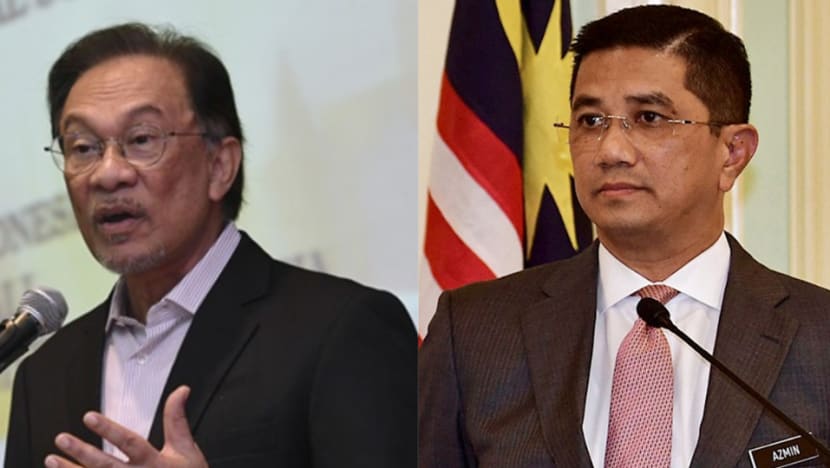
Azmin’s walkout during Keadilan’s party congress last week may have been yet another antic in quest to chart his own distinct political course.
A MATTER OF NUMBERS
At the same time, Mahathir is also making overtures to Pakatan’s main rivals across the political divide, namely UMNO and the religious right in PAS.
Many individuals UMNO members of parliaments have already been “poached” by Mahathir’s Bersatu, effectively doubling Bersatu’s parliamentary representation, with eight crossing over in March.
Though Mahathir had turned down an invitation to form a unity government with the Barisan Nasional, he seems open to the idea of forming a Malay-dominated coalition with UMNO and PAS, the two most conservative parties, having participated most recently in a racially charged gathering with their senior leaders at the Malay Dignity Conference.
For non-Malay Malaysians, this is an extremely worrying trend as it would almost invariably imply a sharp curtailing of their rights should such a conservative coalition come to power.
READ: Commentary: A multiracial Malaysian agenda is not only necessary. It is desirable
Mahathir may be reaching out to these parties to fend off Anwar’s equally determined will to assume the premiership as soon as possible. Each side has to line up enough members of parliament to support their premiership in case of an ultimate showdown between the two.
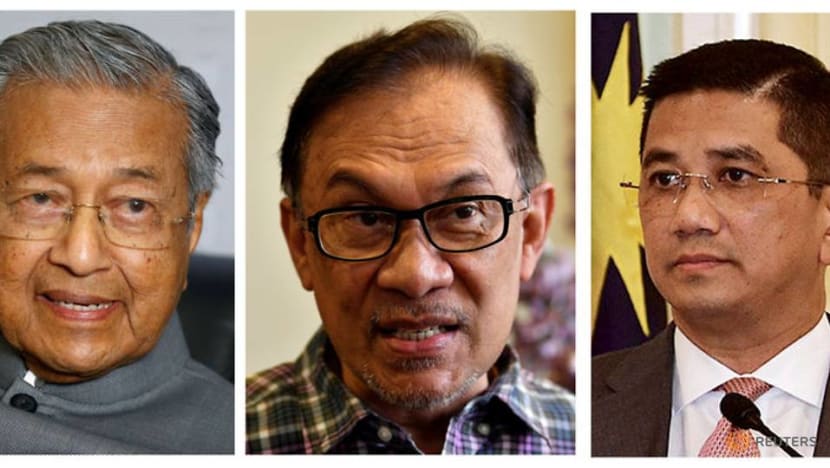
Moreover, a similar sort of gutter politics - as when Anwar was brought down two decades ago on sexual and corruption charges - are being played out again, with recent scandals that seem to implicate both Anwar and Azmin, both of which have not reached a conclusion.
A REFOCUS ON THE ECONOMY NEEDED
As Malaysia is consumed with these power politics, the risk is if the economy gets less attention when political leaders and society are distracted.
READ: Commentary: The reinvention of Najib Razak, former prime minister of Malaysia
READ: Commentary: Jho Low’s fantastic Houdini disappearing act
Although it is set to achieve a 4.7 per cent growth this year, and has escaped rather unscathed compared to more trade-dependent countries in the region, Malaysia could face stronger headwinds going forward.
The world economy has been in the doldrums for the past decade, and Malaysia, as an export-oriented open economy, has not been spared from the slump.
While Malaysia’s economic performance has held up, leading indicators also suggest investment decisions may slow, signaling bigger challenges looming on the horizon for employment and growth. Malaysia’s monthly manufacturing activity measured by the Purchasing Managers’ Index has stayed below 50 this year, signaling contraction.
The often-cited RAM Business Confidence Index for the next six months suggest business optimism remains sluggish, a persistent trend since the start of this year.
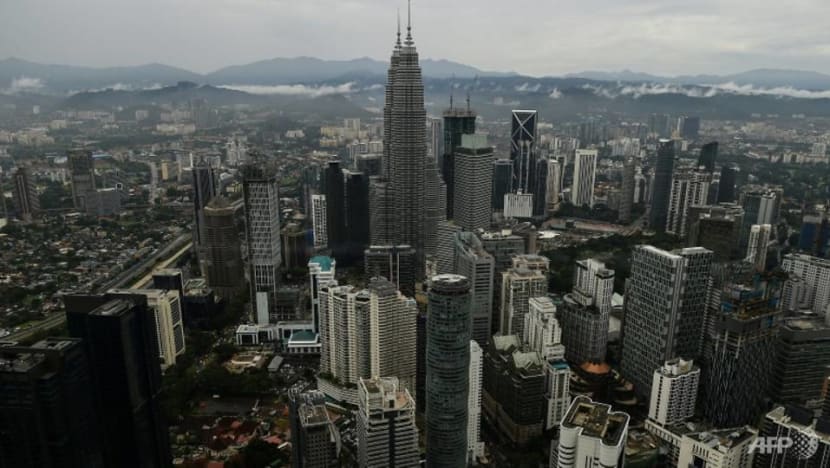
READ: Commentary: Kelantan’s epic struggles with great, yellow floods each monsoon
READ: Commentary: Malaysia’s big motorbike-hailing debate mulls over wrong problems
The sentiments on Main Street in Malaysia also remain bitter. Cost of living remains a top concern, with poverty still a major socioeconomic menace.
Pakatan’s defeat in the recent Tanjung Piai by-election has been attributed to its failure to lower cost of living, among other factors.
Many Malaysians also have concerns over how the Pakatan government is steering the economy. The government’s fiscal deficit and small coffers will make it challenging if a slowdown necessitates a rescue of troubled state institutions.
Therefore, a definitive timeline for Mahathir’s handing over of power to Anwar, or indeed any of his anointed successor, is paramount to restore a semblance of political stability to Malaysia, after such a dramatic change of ruling parties only a year and a half ago, where voters expected long overdue reforms but have met with internecine political bickering and manoeuvring.
The timeline would also enable Malaysia to pay more attention to the urgent need to fix the economy, which would further cement social harmony.
Oh Ei Sun is a senior fellow with the Singapore Institute of International Affairs.














